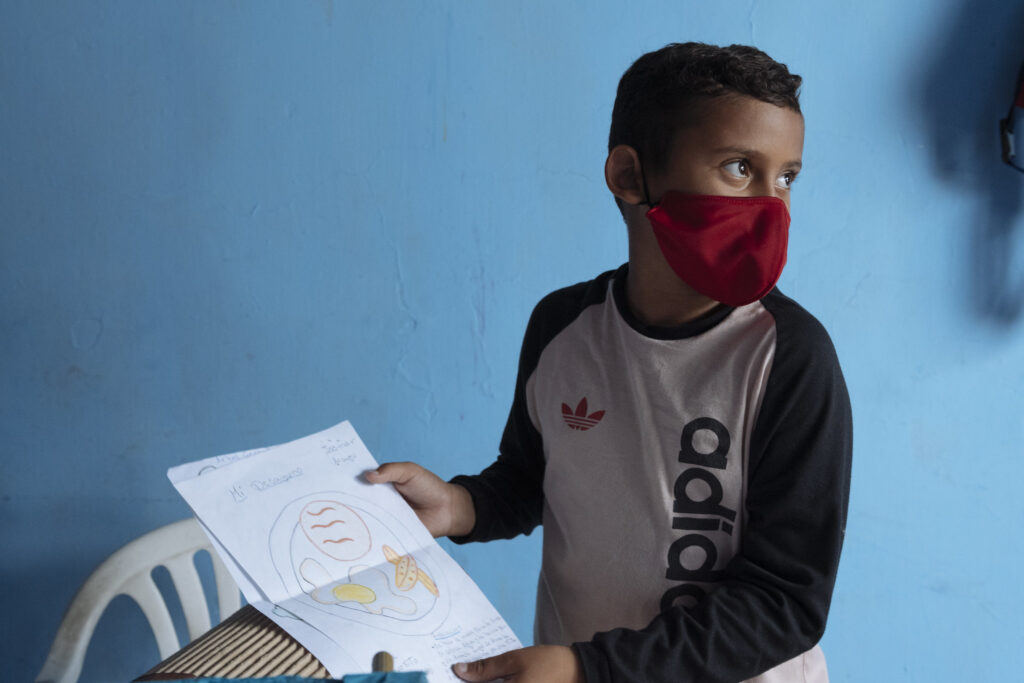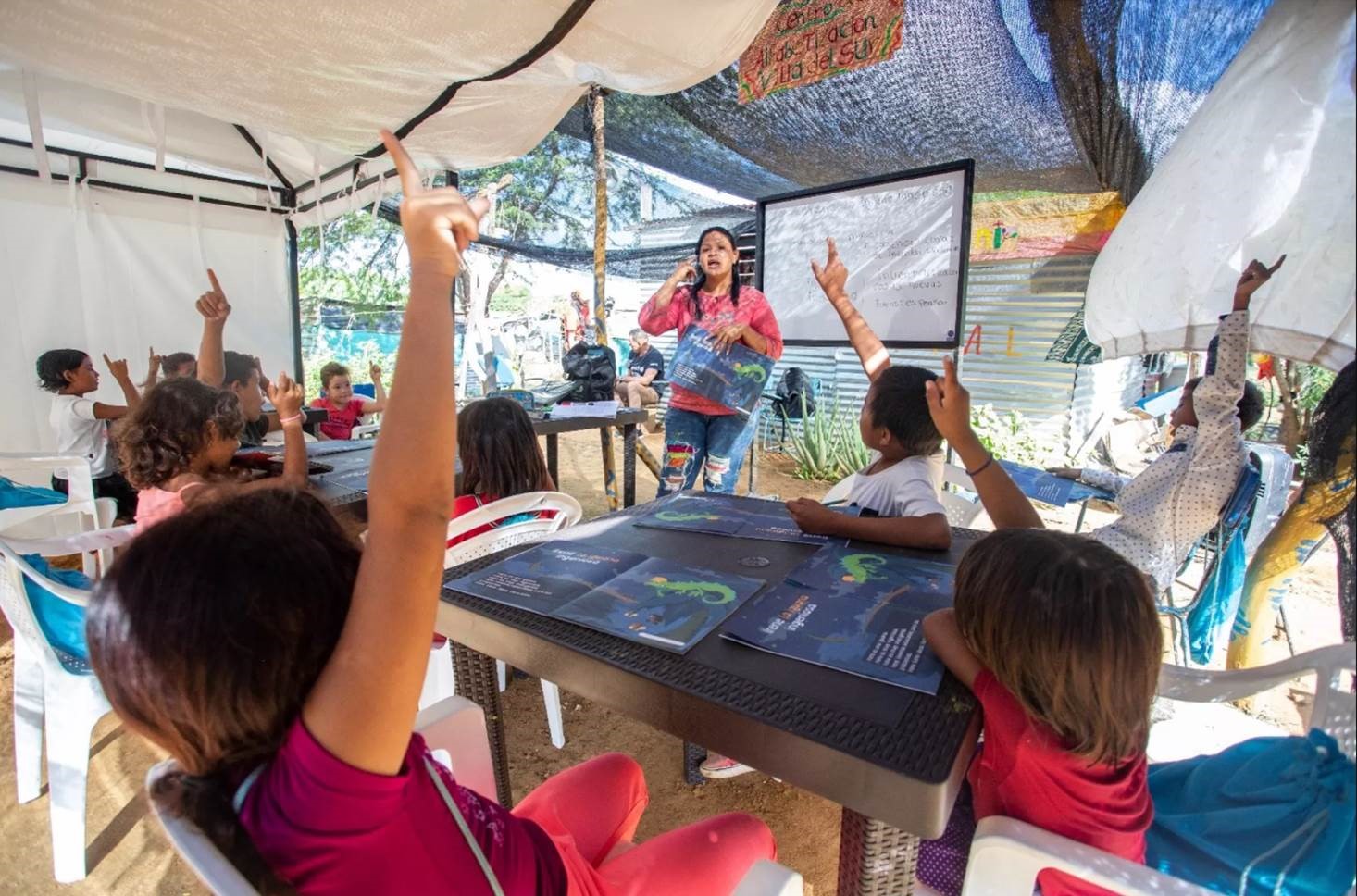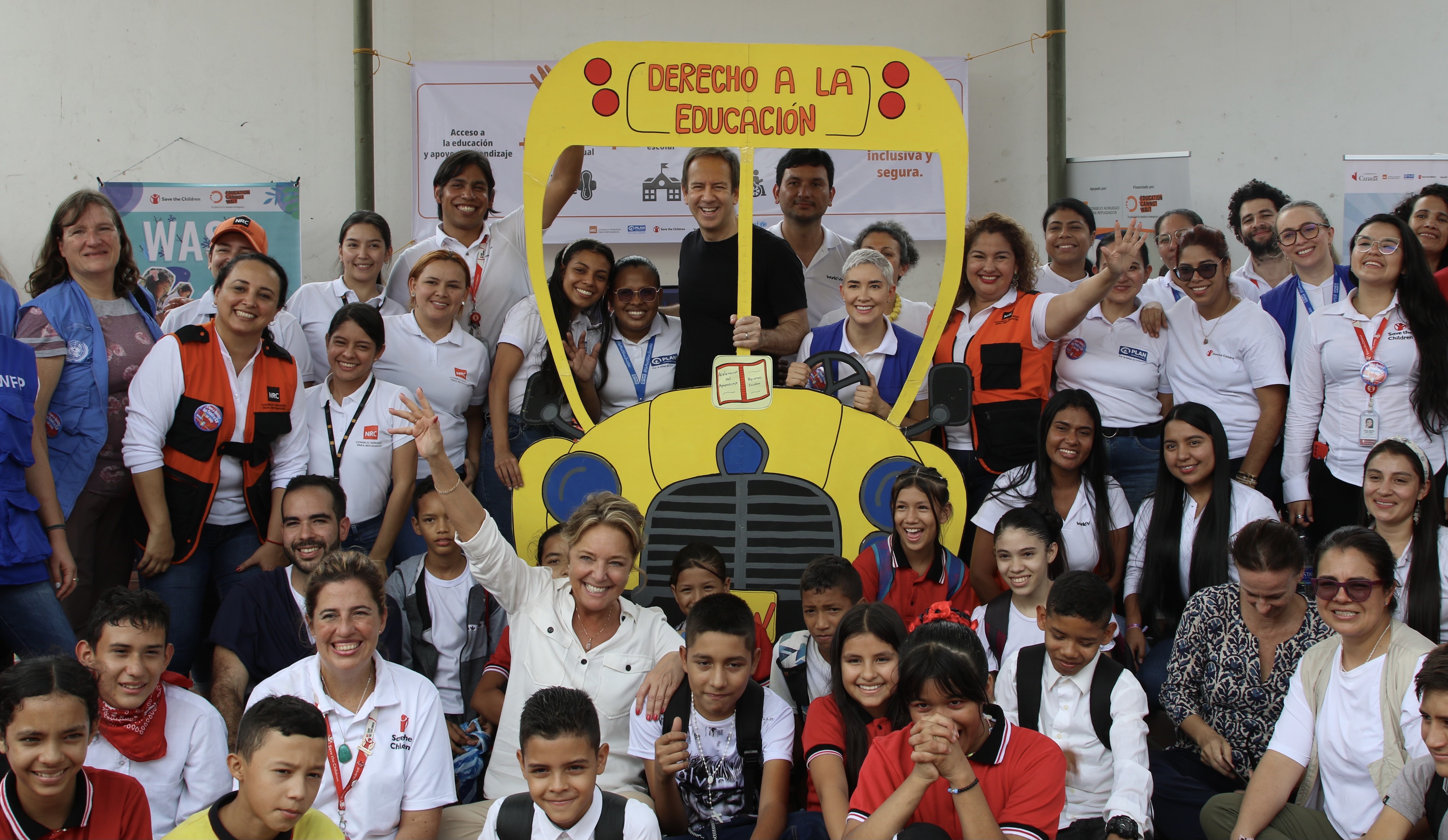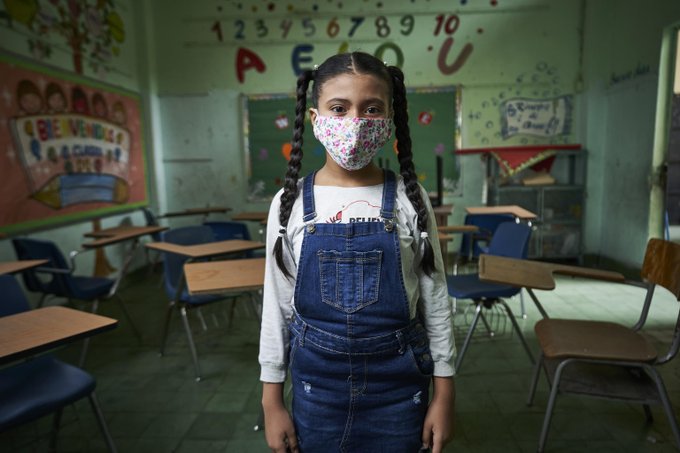Education Cannot Wait Calls for US$116 Million in Expanded Support for Refugee Children and Youth Impacted by the Venezuela Regional Crisis

ECW announces an additional US$1.5 million grant to accelerate the impact of the Fund’s US$27.2 million multi-year education in emergency response for refugee, migrant and host-community children and youth in Colombia, Ecuador and Peru
In response to the Western Hemisphere’s largest humanitarian crisis, Education Cannot Wait (ECW) announced today a US$1.5 million regional grant to advance resource mobilization, policy support, data collection and advocacy to accelerate the impact of the Fund’s multi-year investments in Colombia, Ecuador and Peru.
The new allocation builds on ECW’s US$27.2 million in catalytic grants announced in December 2020. The funding supports multi-year resilience programmes in Colombia, Ecuador and Peru that aim to ensure continued access to inclusive and equitable quality education for over 350,000 vulnerable children and youth.
“We commend Colombia’s recently announced offer of temporary protection to Venezuelans, and hope that the grant from Education Cannot Wait will help implement this remarkable step forward and encourage other countries in the region to follow suit. Financing education for refugees is a moral and political imperative for all world leaders in the 21st Century,” stressed Rt. Hon. Gordon Brown, the United Nations Special Envoy for Global Education and Chair of Education Cannot Wait’s High-Level Steering Group.
With the issuance of the new grant, Education Cannot Wait’s Director Yasmine Sherif called on donors and the private sector to mobilize an additional US$116 million to support the Fund’s education in emergency responses for refugee children and youth in host communities impacted by the Venezuela Regional Crisis.
“Global leaders must step up to address this pressing humanitarian crisis. Over 5.4 million refugees and migrants from Venezuela have fled their country due to violence and insecurity. Girls and boys in this group are at risk of sexual exploitation, human trafficking, discrimination, hunger and malnutrition, and restricted access to schooling. If we don’t act now, many will never return to the safety and opportunity that an education provides,” said Yasmine Sherif, Director of Education Cannot Wait, the global fund for education in emergencies and protracted crises.
The escalating crisis in Venezuela has triggered the largest forced displacement in South America’s history. Globally, only the Syrian exodus is larger. Since 2015, a significant number of Venezuelans have fled into Colombia (2.4 million), Ecuador (1.5 million) and Peru (830,000).
As the situation in Venezuela continues to escalate, it is likely that Venezuelans seeking refuge in neighboring countries and beyond will not be able to return home safely any time soon. Many refugee and migrant children and youth lack documentation or official status, and oftentimes lack access to basic services, including health services, education and social services.
The COVID-19 crisis makes matters even worse. In Colombia, Ecuador and Peru, 28 million learners have been affected by school closures.
While ministries of education are making efforts to expand remote learning options and expand educational programmes to absorb the influx of refugees into local schools, refugee children are often left behind. Without access to the internet, computers and smartphones, these children are being cut off from distance learning opportunities.
New funding accelerates Venezuela regional crisis response
The new US$1.5 million ECW Acceleration Facility Grant supports regional public goods and a cross-border vision aimed at increasing access to quality, inclusive education for refugee, displaced and host community children and youth impacted by the crisis.
The initiative will accelerate the impact of ECW’s country-level multi-year resilience programmes by strengthening education management information systems to integrate migrants and refugees, providing a platform for sharing lessons and good practices across the region, advocating and mobilizing additional resources at the regional and global level, and promoting dialogue for the development of positive education in emergency policies that ensure access and quality education in national systems.
Progress is already underway. With support from ECW, the Governments of Colombia, Ecuador and Peru are taking extraordinary measures to ensure refugee and displaced children have access to education.
Through ECW’s investments, children are provided with safe learning environments, improved access to remote learning and technologies that bridge the digital divide, and psychosocial services to help children deal with the trauma of being forcibly driven from their homes.
Built in coordination with governments, civil society, UN organizations and other key partners, ECW’s multi-year investments in Colombia, Ecuador and Peru align with existing educational, humanitarian and national development plans. The investments address both the immediate humanitarian needs and system-strengthening, enhancing the coherence between humanitarian and development interventions in the education sector.
For Press Inquiries:
Anouk Desgroseilliers:
adesgroseilliers@un-ecw.org
+1-917-640-6820
Kent Page:
kpage@unicef.org
+1-917-302-1735



